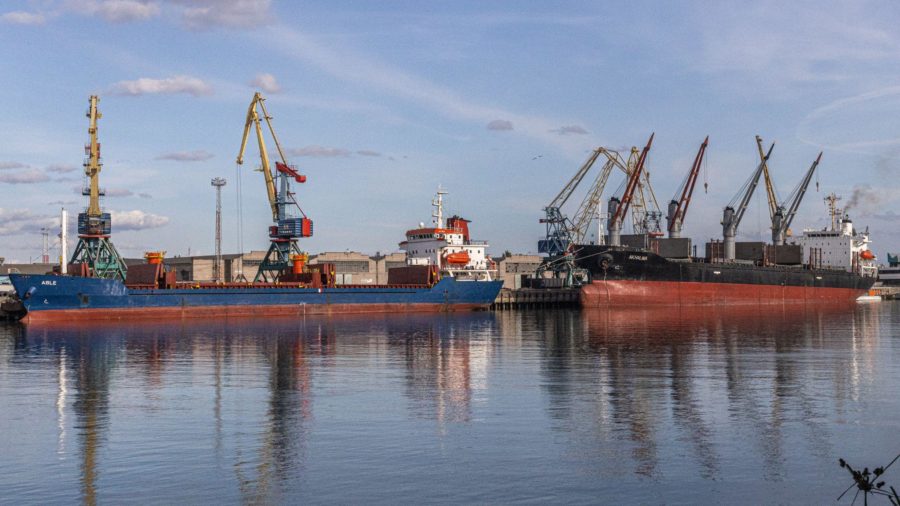On 15 December 2023, the Danube Commission decided to strip Russia of its membership rights due to its missile and drone strikes on the Lower Danube in Ukraine.
The Commission made this decision at its 100th anniversary meeting under the Ukrainian presidency, announced Minister of Foreign Affairs Dmytro Kuleba.
Russia must withdraw from the organization by 29 February 2024. If it does not, Commission members will not recognize their obligations to Russia under the Belgrade Convention on the Regime of Navigation on the Danube River.
This decision responds to violations of free and safe navigation principles on the Danube. It also builds on the Commission’s 17 March 2022 decision to reject Russia’s credentials, ban Russians from all meetings, and expel them from the Commission’s Secretariat.
Why Russia attacks Ukraine’s Danube ports
Russia has accelerated drone and missile strikes at the Ukrainian ports on the Danube that Ukraine is developing in response to Russia’s disruption of its trade routes.
Since the first days of Russia’s 2022 invasion of Ukraine, Russia has leveraged the Crimea peninsula, which it occupied since 2014 and turned into a military base, to disrupt exports of agriculture from Ukraine’s Black Sea ports.
This has not only undermined Ukraine’s economy and forced the country to seek new export routes by land and by the Danube River but exacerbated the food crisis in many Global South countries by not only cutting off access to cheap Ukrainian agriculture products but driving up global grain prices.
Neighboring Romania feels the heat of Russian attacks as well: Shahed drones have repeatedly crashed into the soil of its villages neighboring the ports.
Romania walks tightrope to avoid provoking Russia as drones crash into its soil
The attacks on the Danube ports are part of Russia’s greater activities at blocking Ukrainian maritime trade.
- On 17 July 2023, the Russian Federation withdrew from the Black Sea grain initiative, a UN-brokered agreement to unblock Ukraine’s ports and export its grain, and stated that it would not guarantee that it will not attack civilian vessels after that date. The Ukrainian defense ministry mirrored Russia’s threats to ships at sea.
- After that, Russia launched massive missile attacks on Odesa and the region with missiles and drones, destroying ports, granaries, residential buildings, and other facilities.
- NATO has condemned the Russian attacks but has thus far only vowed to increase surveillance. Meanwhile, Ukraine has changed the course of its grain corridor so that it stays within Romanian waters. Reportedly, the US declined Ukrainian requests to escort commercial vessels in the waters of NATO countries to ensure that the grain corridor keeps functioning.
- The Institute for Study of War has observed that Russia seems intent on enforcing a de-facto naval blockade of the Black Sea by intimidating civilian vessels in it.
- Nevertheless, on 31 July, merchant vessels sailed through Ukrainian territorial waters to ports on the Danube and Ukraine’s Navy opened up registration for civilian ships to use the new corridors in the Black Sea.
- Since then, ships are successfully sailing from Ukrainian ports through the corridors.
In November-December 2022, Russia was:
- excluded from the International Maritime Organization Council;
- not elected to the UN International Court of Justice;
- it became the first country ever excluded from UNESCO’s Executive Board.
- it was also not elected for the first time to the Executive Council of the Organization for the Prohibition of Chemical Weapons.
Related:
- Ukraine outmaneuvers Russia at OSCE, in chemical weapons, maritime agencies
- Romania walks tightrope to avoid provoking Russia as drones crash into its soil
- Ukrainian Danube ports achieve record growth in 2023




